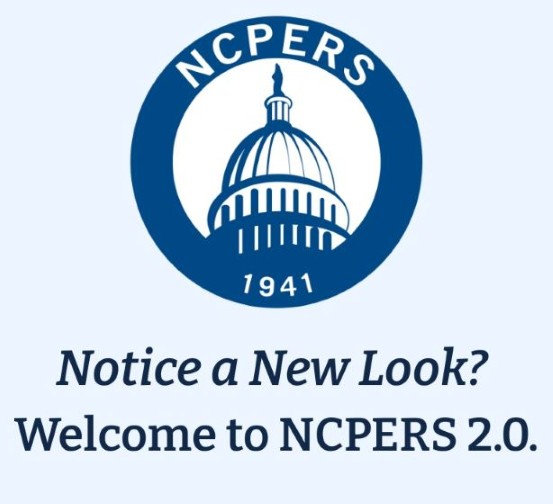Healthcare Enhancement for Local Public Safety (HELPS) Act
What Public Pensions Should Know About the Healthcare Enhancement for Local Public Safety Act (HELPS)
 In the Pension Protection Act of 2006, NCPERS successfully lobbied Congress to approve the Healthcare Enhancement for Local Public Safety Retirees Act (HELPS). This act allowed a yearly pretax distribution of up to $3,000 from a governmental DB, 403(b), or 457(b) plan to retired public safety officers for use toward healthcare or long-term care insurance, provided the premium payments were made directly by the governmental retirement system to the provider of the insurance. HELPS took effect on January 1, 2007. It is found at IRC Section 402(l).
In the Pension Protection Act of 2006, NCPERS successfully lobbied Congress to approve the Healthcare Enhancement for Local Public Safety Retirees Act (HELPS). This act allowed a yearly pretax distribution of up to $3,000 from a governmental DB, 403(b), or 457(b) plan to retired public safety officers for use toward healthcare or long-term care insurance, provided the premium payments were made directly by the governmental retirement system to the provider of the insurance. HELPS took effect on January 1, 2007. It is found at IRC Section 402(l).
Prior to HELPS, retirees paid for their health or long-term care premiums entirely with after-tax dollars. Since 2007, eligible public safety retirees have been able to use pretax dollars from their qualified pension plans to pay for some of their health premiums. For retirees who are in the 24 percent federal marginal tax rate bracket, this could be a tax savings of up to $720 per year.
Over the years, however, NCPERS learned that the direct payment requirement was an administrative burden for many retirement systems and even caused some systems to not implement HELPS, thereby rendering their public safety retirees ineligible for the tax exclusion. In the 117th Congress (2021-2022), H.R. 7203 was introduced by Rep. Steve Chabot (R-OH) and Rep. Abigail Spanberger (D-VA) to repeal the direct payment requirement. Also, Senators Sherrod Brown (D-OH) and John Thune (R-SD) introduced S. 4312, which would have made the direct payment requirement optional instead of mandatory. We are pleased to report that the SECURE Act 2.0 included the Brown-Thune legislation.
In addition, there is growing recognition that the $3,000 annual cap under HELPS, which has not changed since its inception 17 years ago, needs to be increased. H.R. 7203 would have doubled the annual cap. There is also discussion of indexing the cap each year for inflation.
Finally, in the 117th Congress, S. 4267 was introduced by Sen. Michael Bennet (D-CO), who serves on the Senate Finance Committee. This bill would index for inflation the annual cap under HELPS as well as create a new and separate tax credit for retired public safety officers for their healthcare premiums of up to $4,800 per year. Building on our success on the HELPS direct payment requirement issue, NCPERS will advocate for these new proposals to enhance HELPS and create a new tax credit.
Understanding the Basics of the HELPS Act
Those public safety officers who have separated from service as a public safety officer and have attained normal retirement age or who are separated due to a disability are eligible for HELPS. To take advantage of the tax exclusion, a retiree must be receiving his or her pension distribution.
The IRS has indicated that it will use the criteria for retirement established by the plan. For plans that do not have a “normal retirement age,” it would be reasonable to take the position that attainment of the requisite years of service (YOS) or combination of age and YOS for those plans using a “point system” would be deemed equivalent to “normal retirement age.”
The HELPS law says that an eligible retired public safety officer is “an individual, who, by reason of disability or attainment of normal retirement age, is separated from service as a public safety officer …” The IRS has indicated that this provision renders ineligible persons who took an early retirement with an actuarial reduction.
Qualified governmental defined benefit, IRC Section 403(a), Section 403(b), and Section 457(b) plans are covered by HELPS.
Both you and your spouse would be eligible to exclude up to $3,000 each to purchase health or long-term care insurance for a total exclusion of $6,000.
Under the current HELPS law, the term “qualified health insurance premiums” is defined as premiums for coverage for the eligible retired public safety officer, his spouse, and dependents, by an accident or health plan or qualified long-term care insurance contract. The original 2006 statute was amended to ensure that self-insured plans qualify under HELPS.
Treasury Notice 2007-7 states that there are no survivor benefits under HELPS.
FAQs About the 2022 Amendments to the HELPS Act
Below you'll find answers to frequently asked questions about the 2022 Amendments to the HELPS Act, part of the SECURE Act 2.0.
The SECURE Act 2.0 also provided that, in cases where the distribution is made to the retiree, the retiree must include with their tax return an attestation that the amount sought to be excluded from the pension distribution does not exceed the amount paid by the employee for qualified health insurance premiums for the taxable year.
Given that the change to the direct payment requirement is likely to raise a number of practical questions for governmental retirement systems and their retired public safety officers, we expect guidance to be provided by these agencies in the coming months.
NCPERS supports increasing the annual exclusion amount cap under HELPS and indexing that amount for inflation in future years. The current $3,000 annual cap has not been increased since its inception in 2006 despite significant increases in premiums for healthcare and long-term care insurance over that 17-year period.
We also will be working on new legislation introduced for the first-time last year by Senator Mike Bennet (D-CO), S. 4267 (117th Congress). The bill, as introduced in the previous Congress, would create a new tax credit for retired first responders for healthcare premiums of up to $4,800 per year.
Last Updated February 2023

